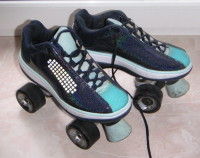Categories
- Additional Insured
- ChildrensProducts
- Claims Made
- Cyber Insurance
- Dietary Supplements and Nutraceuticals
- Ecigarettes
- Firearms Insurance
- Food Products
- Foreign Products Liability
- Foreseeable Misuse
- Frivolous Lawsuits
- General Liability
- Industrial
- Infographics
- Intellectual Property
- Looking ahead
- Marijuana Liability
- Medical Products
- Mutual Indemnification
- Nano Technology
- News
- Online Sellers Insurance Requirements
- Outsourcing
- Piercing The Corporate Veil
- Pollution Liability
- Product liability
- Product Recall
- Retail Chain Store
- Start-Up Business
- Statute of Repose
- Surplus Lines Insurance
- Technology
Understanding Children’s Product Liability

The most unique category of products in the marketplace
Importers, distributors, manufacturers and inventors of children’s products must understand how insurance carriers, courts and retailers think about this distinct category of products.
Why children’s products are different from other products
- The number one reason children’s products and product liability are unique is the statute of limitations. All Product Liability laws are state laws, and they restrict the amount of time in which a plaintiff can bring a lawsuit.Most states allow two years to bring legal proceedings when an adult is injured. However, when a child is injured, most states allow to their 18th birthday, and many states allow up to an additional three years to age 21.
- Waivers that disclose the risk and ask the consumer to accept it are less effective with children than with adults. That doesn’t mean you should not use them, particularly when the product involves risk. However, most states don’t recognize a child’s signature as legally binding or allow an adult’s to sign away the rights of a child. With that being said, a well-crafted children’s waiver might help reduce the monetary judgment or settlement. Therefore, a case can be made for their effectiveness.
- As we know, children will be children. A child is not held to the same standard as an adult with regards to judgment and use of products in the eyes of the law. A much higher degree of care is expected from businesses that distribute products in the U.S.
Why retailers often require occurrence-based policies over claims-made policies
An occurrence-based insurance policy better protects the distributor and retailers than a claims-made policy. An occurrence-based product liability policy provides coverage if the incident that led to a product liability lawsuit happened when the policy was in force.
The same cannot be said for a claims-made policy. To be covered by a claims-made policy, both the incident and the claim must occur when the policy is in force. In other words, with a claims-made policy, if an incident occurred while the policy was in force or active, but a claim filed after the policy expired, there would be no coverage.
Retailers selling children’s products are well aware of the weakness of the claims-made policy. They focus on not being seen as the only deep pocket if a Product Liability lawsuit occurs involving a product they sell.
Why product recall policies are a good idea
Anybody thinking about inventing and/or distributing a children’s product in the U.S. for the first time should visit www.recalls.gov. Review there all the seemingly innocuous children’s products currently under recall. None of the businesses listed in those recalls would knowingly put a dangerous product into the marketplace.
With any children’s product, the unknown typically leads to a product recall. For example: drawstring choking hazards, brittle plastics used in skates, lead and cadmium used in cheap jewelry, etc. Such hazards do not always lead to Product Liability lawsuits. However, they often lead to a product recall.
The fact is that recalls are very expensive and much more likely to occur than the more serious Product Liability lawsuit.
-
 Click the Button Below to Get Your
Click the Button Below to Get Your
No-Obligation Quotes from Among the
Top 18 Leading Insurance Carriers Today -
Recent Industry News
- Amazon Sellers and Vendors Strategy Including Insurance Requirements
- Walmart Sellers Insurance
- Product Liability Limit Requirements of Online Sellers
- State-by-State Product Liability Analysis of Laws Impacting Businesses
- Children’s Product Liability: Strange Claims and Need for Insurance
- Product Liability vs. Environmental Insurance for the Chemical Industry
- Product Liability in the 3D Printing Industry: New Materials and Their Significance
- Product Liability Concerns in Agricultural Equipment Enhanced with Artificial Intelligence
- Navigate Product Liability in Battery and Solar Industry
- Cyber Risk Insurance Is Essential Business Insurance in Today’s Modern World
Monthly News Archives
